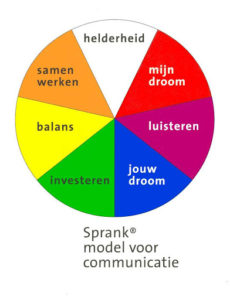
“Alfa-Bèta-Circle”, Ills. Hans Jakobs, 2020
Introduction
This essay [1] is an unorthodox attempt to write a handbook on forensic expertise [2]. My intention is to bring about a real improvement of understanding for all criminal justice professionals, the “users of forensic expertise” in criminal procedure; in my opinion a timeless and very useful ideal.
In the light of my recent attendance at trials of 24 Dutch criminal cases it has become clear to me that, in almost every criminal case, a greater understanding and clearer explanation is desirable of natural sciences as practiced in technical laboratory research and executed on traces within the Netherlands Forensic Institute (NFI) in the truth-finding process in criminal law. The name for this kind of research into traces as part of the criminal process is Criminalistics.
Criminalistics is the natural scientific aspect of the forensic sciences. It focuses on natural scientific research on evidence on behalf of truth-finding in criminal law. And It is directed towards the significance of the results of such research for that truth-finding. [3]
The explanation of an expert in court (art. 339, paragraph 1, sub 4), and the expert’s report, the written documents (art. 339, paragraph 1, sub 5 ) are the two different kinds of legal evidence, regarding the expert. Limited to these and combined with the judge’s own observations, the declarations of the suspect, and the declarations of a witness (art.339, paragraph 1, sub 1, 2, and 3), these five constitute the – limited – means of legal evidence as recognized in the Dutch Code of Criminal Procedure.
Even though forensic research is also carried out by other authorities, such as the Police, (semi) private institutes, – laboratories, – individuals and Universities, I have decided to take the NFI as my starting-point, for two reasons:
1. In 2020 the lion’s share of the forensic research concerning traces in connection with criminal offences in the Netherlands is still executed – on a high scientific level – by the NFI.
This research is commissioned by the Public Prosecution Office at the stage of investigation and prosecution, at the request of the examining magistrate / inquiry judge, the judge and, in some cases, also at the request of the defence.

2. In 1995 I had the privilege of being allowed to initiate and draw up a book of reference [4] about forensic expertise as practiced then by the predecessors of the NFI, called ‘The Forensic Laboratories’. I distinguished at the time 31 areas of expertise, and in close cooperation with 31 experts a powerful source of knowledge was created at the service of the sitting and standing magistracy, and recommended as literature for the Police Academy.
After 25 years, in my view, it is now the right time to redefine the current conditions for a better understanding of the forensic kinds of expertise in the shape of:
A Blueprint, describing the essentials of background-knowledge, theory, practice and science, for each field of expertise.
In order to illustrate the importance of a systematic composition of a reference book and a textbook about forensic expertise, I have arranged the arguments into four groups.
A. Why? Finding reasons,
B. What? Table of contents, strengthening the beta-sciences and techniques,
C. How? Method, describing essentials in the connecting Blueprint,
D. What for? Improving the understanding of the target audiences and thus enlighten the criminal procedure.
A. Why? Finding reasons.
Signals from the Dutch criminal trials 2014-2019
From the end of 2014 to 2020 Ir. Huub Hardy [5] and myself were present at 24 heavy criminal cases in Dutch courts and tribunals [6] [Appendix 1 Dutch Criminal Cases]. We made an inventory, a close analysis and minutes of the cases. These criminal cases were selected on the basis of the role of the experts in the proceeding. In such trials, more often than not, the judicial experts were physically present and made declarations in court.
My focus in these cases was on the communication, i.e. the dialogues between experts and lawyers, as I heard them in court and saw them with my own eyes. I made notes from which lawyers’ needs in practice were found and from which lawyers’ wishes could be distilled.
In 9 of the 24 criminal trials (almost 38 %) judges, public prosecutors and barristers asked clearer literal explanations from the experts, specifically linguistic, such as: ‘no jargon please’, ‘clearer terminology’, ‘layman language please’, ‘what is the meaning of’, ‘report is hard to read’, ‘what precisely do you mean’, ‘closer explanation please’.
In 17 of the 24 criminal trials (almost 71 %) experts turned up in court. Judges, public prosecutors and barristers asked them intensively, not only about their use of language, but also, at length, about the significance of working methods and skills, and about the professional background and experience of the expert.
The lawyers, usually alpha-trained, put many probing questions to the forensic experts (who had usually been trained in beta science or in technique) such as:
* what is the background-science of this expertise?
* how do the various methods of expertise / research operate?
* how do the underlying instruments and apparatus function in this expertise?
* can you explain the difference in research on the source-level [7] and on the activity-level [8] ?
* what is the meaning of contamination [9] and secondary transfer [10] ?
* what is the background-science of this expertise ?
* explanation new – recently developed- forensic techniques?
* explanation of Bayes Theorem [11] with the use of hypotheses, formulated in the conclusions of the forensic reports,
* what is the training, the experience, the background and the CV of the expert?
What it all comes down to, is that I personally observed a clear need of a more intensive insight into the practice and the theory of forensic expertise within the courtrooms.
From this we may conclude that the classical ‘’alfa-beta-gap’’ needs a better bridging and that this fascinating paradox – in 2020 – deserves closer attention than it is getting at the moment.
Since 2010 I have been developing a so-called Blueprint, which is intended to raise to a higher level the understanding between alpha and beta. This Blueprint will offer a chronological, systematic survey of the basic ideas that underpin each field of expertise.
This uniform will describe the essential characteristics of the expertise. Its contents is to be formulated in close cooperation with the forensic experts.
In this way, a structured explanation of matters which are often hard to understand, will be offered to the lawyer in criminal procedure; of forensic expertise, being a piece of evidence.
Truth-finding can be lifted to a higher level [12] if forensic expertise will be understood more closely and more critically. Improving the understanding of the forensic sciences and their applied forensic expertises on the lawyer’s side, will establish a positive impact on three crucial parts of the criminal trial:
1. The communication, the dialogue between lawyers and experts,
2. The interpretation of the forensic expertise by the lawyer,
3. The truth-finding.
Signals of the ministerial improvement process regarding the future of the NFI, anno 2019
In his vision of forensic research the Minister of Justice and Security [13] shares his view of the future for the NFI with the House of Commons [ Second Chamber ].
Some interesting points from this vision:
1. A system of steady provision of information is crucial if one is to come to a better and more efficient collaboration in the chain.
2. Contemporary investigation demands that forensic expertise will be available right at the start of the process; a complete and prompt offer of forensic expertise should be accelerated and enlarged.
3. The NFI-Catalogue of available services is not merely a static device. There should be a permanent recalibration of ‘’sourcing’’ – who delivers what? – by NFI, or by Police- and (semi) private labs, and this needs constant attention.
These three political recommendations all are relating to the delivery of the many types of forensic research of traces within the chain of criminal procedure, with the NFI as a main addressee. Next to them there are more available suppliers, depending on special experience and knowledge, also seen logistically [Police] and scientifically [Universities].
And this is exactly what the pivot of my plan is; to produce a forensic book of reference from all Dutch available forensic expertise, with all ‘’knowledge and science held by the NFI’’ taken as a starting point. Together with all other Dutch available expertises, next to the NFI, be described in a uniform and carefully worded book, and – thus reinforced as insightful and dynamic information – will be put at the disposal of all the partners in the chain.
Viewed objectively the various NFI-expertises can be considered an essential link in the criminal chain of evidence, in which it serves as a scientific and supportive element.
A well-founded arrangement and selection [‘triage’] of applicable forensic expertise, based on insight and understanding, must be found right in the beginning of the process– quick and playfully – by all chain partners. Together with the above mentioned personal and political signals, this objective circumstance is a sufficient reassuring reasoning on top, for the meaningfulness of a systematic way of editing a Handbook on Forensic Expertise.
B. What? The table of Contents; strengthening of the beta-sciences
The intended forensic reference book will cover the following:
1. All fields of forensic expertise practiced within the Netherlands Forensic Institute [14]; from forensic anthropology to wildlife forensics [Appendix 2 Forensic Research Netherlands Forensic Institute] will be the starting point of the content of the handbook to be edited.
The NFI laboratory research is based on a variety of beta knowledge, including technical sciences and biology, chemistry, medicine, mathematics and natural sciences. It will all be described – in collaboration with the experts – as completely, systematically and transparent as necessary to be essential.
All NFI-expertise – mostly beta-information, knowledge and science – are described carefully in essentials and thus serves, reinforced, all lawyers, mostly alpha-users. The constant dynamic factor is that scientific standards and norms keep growing together with the development of the fields of expertise [15] .
2. The forensic applications of expertise which are executed by the Police, (semi) private institutes and private individuals, must also be summarized.
3. The various Universities in our country who are offering possibilities, where solid and impartial forensic research is executed, must be summarized .
For example, The Maastricht Forensic Institute (TMFI) and the Forensic Leiden DNA-Research Institute (FLDO) [16] . They all play an important role within the development of forensic sciences – and are as such indispensable for the defence – as a second opinion of equal weight. Such counter-expertise will ensure a fair trial with equality of arms. [17]
4. Newly developed forensic techniques: recently discovered and often still being under construction, scientific techniques with promising forensic application, are important to mention. Many of them were presented at the University of Amsterdam [18] between 2014 and 2020. [Appendix 3 New forensic techniques].
A very recent example of this is the drastic reduction of the time scheme round the Post-Mortem Interval (PMI) [19]. In a case of a committed crime it is now reduced to an average of 45 minutes; this used to be a few hours.
The new method, which can reduce the circle of suspects considerably, is being developed by researchers of the Amsterdam-based University Medical Centre, the University of Amsterdam and the NFI. The new PMI-method works with a thermic camera or a censor taped on the body. More factors play a role, such as the question: was the body left behind fully dressed? Was it found lying in water?
This specialism is to be mentioned within the field of forensic pathology.
5. Juridical background information.
For each field of expertise a clear image should be sketched of the legal context in which the forensic research is situated, for the benefit of the forensic expert himself.
Forensic expertise takes place against the background of legislation, jurisprudence / case-law and against professional literature and magazines. Where possible, a linking-text with ‘’Text and Comment’’ of the Code of Criminal Procedure must be realised. Also, for each field of expertise a worked-out legal model of such a case should be presented.
In this way the whole range of specialized skills will give shape to an intensive inventory of the available forensic expertise in the Netherlands. At the same time it will all be a part of the table of contents of the on-line forensic book of reference to be created.
C. How? The Method; the connecting Blueprint
The existing professional NFI-appendices are now very diverse and described in a non-homogeneous style. They differ in terms of description order, layout, photos, graphics, drawings, length, naming and design.
In 2010 I made a start in developing a so-called Blueprint; a forensic ‘’informative infra-structure’’ consisting of 12 sections. A description of background-knowledge and science, theory and practice per field of expertise, built up according to a fixed structure.
Together with two forensic experts, who were practicing in 2010, I have written Two Concepts of Blueprints in English [20] :
1. With Professor George Maat (LUMC, NFI): ‘Forensic Anthropology’.
2. With Drs. Will Fagel (NFI): ‘ Forensic Handwriting Expertise’.
From 2014 to 2020, by making notes of registered needs and wishes, I amassed a detailed knowledge of the lawyers’ demand-side. On realizing the diversity of the needs for these I expanded further the existing Blueprint, under compassion with the lawyers’ wishes, and add some 9 items, to reach an amount of 21 sections, as a total in the Blueprint anno 2020, for the time being.
The ‘’Blueprint 2020’’ aims at a transparent and uniform structure, a simple chronological lay-out, a differentiated survey and a scientific and scholarly insight into all practical, theoretical and legal aspects per field of expertise. To manufacture in an atmosphere of mutual coordination and close cooperation with the NFI-experts, the Blueprint will function as the constructive core of this Essay.
The Blueprint insight is provided into the practice of the forensic experts’ supply side of both the NFI-expertises possible and of its limitations. By means of a description that is permanently kept up to date, an all encompassing source of information and knowledge in each field of expertise will come into existence.
It informs the reader of the actual state of the background and the limits in each field of expertise. Also, it provides insight into instruments and apparatus used, it explains research analyses and methods and how conclusions [21] are drawn. And it gives insight into professional literature as well as into legal and scientific background and available laws and case-law for each field of expertise.
Thus the practical needs are met for ‘detailed knowledge of, on the one hand, the diversity of the demand-side and, on the other, of the possibilities and the restrictions of the (forensic) supply-side’ [22] . All these elements are deemed necessary in the discussion of a more equitable division between the demand and the supply of forensic expertise.
It is the ideal of the Blueprint to bring about an optimal bridge-connection between the beta’s supply of forensic expertise (NFI) and the alpha-lawyers’ demand of forensic expertise, to be used in the chain of evidence.

Note 23 – Spank Model for Communication
In the final Blueprint the actual needs and proposals of the NFI-experts will have to be incorporated, so that the final contents will be an all-encompassing clear source of shared information and knowledge.
Within this framework my Blueprint-proposal will have to be discussed with the NFI, by listening to the NFI-needs and -wishes of the experts, investing time in this process and thereafter to take stock and work together towards the aimed essential clearness as the final purpose of the Blueprint.
As science, technique, and insights move forward continuously a paper version of a book will be soon out of date, and an on-line version of a Blueprint-bundling of all practised fields of expertise within the NFI might be the preferred format. The future of each Blueprint will be a dynamic process, in which forensic applications will be deleted, replaced and added on a regular basis. A uniform explanation of the essentials of the various expertises will be realised under the slogan ‘’unity in diversity’.
The famous Dutch pathologist-anatomist Dr. Jan Zeldenrust [24] pointed out already in the twentieth-century, that great value should be attached to the fact that a physician as expert ‘should be a speaker of Dutch so that the medical layman will understand what he has to say.’ This is a valid point when it comes to the medical expert, but it is still equally relevant for all other kinds of forensic experts.
Written in lay-language on an academic level, the Blueprint is meant for all lawyers and everyone else involved professionally with forensic expertise. It will be edited in a way to reach clearness in every field of expertise so that the ‘’difficult stuff’’ will be understood optimally.
[Appendix 4 Blueprint Per Area of Expertise.] .
D. What for? Improving the understanding of the target audiences
A book of reference will be a collection of all Blueprints together, filled with information on all different sorts of forensic expertise. It is intended to provide a uniform insight into the practice of all forensic expertise and will create the possibility of equitable communication between the partners in the chain of custody.
Thus a Handbook of Forensic Expertise may function as a strategic instrument to optimize the connection between the several chain-partners within the criminal procedure.
In this way in future also the bond between the lawyers themselves may improve. By creating a better understanding of forensic expertise, a clearer and more critical dialogue between the lawyers themselves will be possible. Future assignments of research, including wishes, directed to the NFI [25] , will have to be shared by the public prosecutor with the defence, as actually prescribed by the New Code of Criminal Procedure. A greater understanding – prior to the application – will result in a sharper joint formulation of the investigation assignment to the NFI.
The existence of a current ‘’state-of-the-art’’ survey of forensic expertise, may possibly serve as the solution of cold cases [26] [27] [28] and possible judicial errors [29] within criminal law and may even be suitable to avoid these errors.
A different category of individuals who would be interested in a forensic book of reference are the NFI-experts themselves. They too ought to be well informed of both the level of the expertise of their colleagues – related to the Inter Disciplinary Forensic Research [IDFO] [30] – but also of the legal background of the criminal trial, in which context their expertise will serve.
A Handbook of Forensic Expertise will give insight into the complete range of multidisciplinary forensic research; this runs from Crime Scene to the final verdict.
This covers the demand of the Council of the Judiciary, which means that the level of forensic knowledge of the judges must be high enough for them to be able to approach contributions of the experts critically. This requires all judges to be familiar with the most important methods of research. [31]
A Handbook of Forensic Expertise in a Dutch and in an English version, can serve the following purposes;
1. It will be a book of reference for all lawyers in the legal process [32] ; judges, public prosecutors and barristers,
2. It will be a book of reference for NFI-experts, a peer NFI-insight, particularly when it concerns interdisciplinary forensic research [IDFO],
3. It will serve as a book of reference, including the practice aspects, of the forensic and technical police, [33]
4. Students at the Police Academy will use it,
5. Students of Criminalistics and Criminology at academic institutions and post-academic studies will study it,
6. The lawyers at the International Criminal Court [34] will need and use it as book of reference,
7. As a complementary service it will be useful for the NRGD [35] .
The NRGD in Utrecht offers forensic experts the possibility of standardization and regulation in their field of practised expertise. Thus the NRGD offers a possibility to deal with certification and admission to the NRGD-list, which grants the individual expert a quality in criminal law.
The description by the NRGD of the ten areas of expertise, already accredited, can be used, (partially) to fill out the relevant Blueprints. Also, future Blueprints will be at the service of the NRGD, thus achieving an obvious process of Dutch cross-fertilization from which both the NFI and the NRGD will profit by unifying and clarifying national ‘forensica’.
In this context the Forensic Science Regulator [36] , a governmental organisation in Birmingham, England (founded in 2008), can be compared with the NRGD.
By means of ‘Codes of Practice and Conduct’ it demands from the forensic experts that they live up to the high and uniform standards of conduct for the quality of individual behaviour and of professional methods in its organisations. It demands solid, effective and transparent reporting in criminal courts.
The Forensic Science Regulator aims at uniformity of individual behaviour and of the forensic process of research, within the world of forensic expertise, within the UK.
The NRGD aims at this by setting uniform expert-certifications in each area of expertise, in The Netherlands. While the proposed Blueprint tries to achieve a uniform way of describing the essentials per field of forensic expertise
In combination above mentioned ‘uniformities’ aim at a subject I wrote about in 2000, the so called ‘double transparency’’ in the [European] forensic expertise:
1) transparency of available qualified experts,
2) transparency of available methods of forensic research.
With the manufacturing of the Blueprint-bundling, a uniform transparency of expertise-essentials will be created; reason why a better understanding and a better interpretation of the forensic reports by criminal lawyers will be enabled. [37]

“Alfa-Bèta-Circle”, Ills. Hans Jakobs, 2020
Conclusion
With the editing of a clearly written Handbook containing all NFI Forensic Expertise, a positive impulse may be given to the attitude of the NFI, known as a little customer-friendly attitude [38] . Of course with the passage of time more professional forensic data have become available.
Now it will be a matter of arranging and systematizing the already existing NFI-information per field of expertise, to pour that information into the uniform of the pivotal, definitive version of the Blueprint, in close collaboration with the experts concerned.
As an actual source of consistent information the NFI-Catalogue of forensic expertise will be the focus for the outside world, particularly where it concerns the chain of evidence. [39]
At the same time ‘’the need of an explanatory mechanism and knowledge’’ [40] will be fulfilled, with regard to the so-often consulted NFI-forensic expertise areas. An important purpose formulated in the ‘’Law Expert in Criminal Cases’ (2010) will be honoured: the improvement of the communication [41] between expert and jurisdiction.
An additional positive aspect is that also the insight into Criminalistics will increase.
All essentials on forensic expertise will come together in the Blueprints by way of a logical and systematically described process. It will serve its purpose as an educational tool and may be helpful in the future of the university study ‘Criminalistics’, that will be insightfully safeguarded.
An NFI-reference book, edited by collecting all the Blueprints that describe essentials per field of expertise, thus basically is a sum of simple ideas [42] . It will achieve as its end-result a well-structured Handbook Forensic Expertise; the realisation of a timeless and useful Ideal.
Voorschoten, November 12th, 2020
Recommended Background Literature
Aben, Diederik and Meulenbroek, Lex, A Haysteck filled with Needles, The use of genealogical DNA-data-banks, in tracing and identification, Publisher Paris, December 2019
Broeders, Ton, Developments in Criminalistics, From Fingertrace to DNA-profile, from certainty to probability, Oration on the occasion of his appointment as Special Professor in Criminalistics, Leiden University, 19 November 2004.
Eco, Umberto, The Enchantment of Lists, Publishing House Bert Bakker, 2009
Fresco, Louise, Cross-fertilization, Prometheus, Bert Bakker, Amsterdam, 2014
Groeneveld, Robert, The art of investigation and science, Instruments for the intelligent criminal judge. Farewell Lecture as a Professor Criminalistics, Leyden University, 7 December 1999
de Keijser, J.W., Elffers, H., Kok, R.M., Sjerps,M.J., Almost understood? Boom Legal Publishers, The Hague, 2009
van Koppen, Peter, Convincing Proof, New Amsterdam Publishers, 2011
Bernard – Robertson / G.A. Vignaux / Charles Berger, Interpreting Evidence, Evaluating Forensic Science in the Courtroom, Second Edition, John Wiley & Sons Ltd, Oxford, UK, 2016. de Spinoza, Baruch / Benedict, Ethics (1663 – 1675), Publishing House Bert Bakker, Amsterdam, 2004
Thorwald, Jurgen, Das Jahrhundert der Detektive, Droemer Knaur, Zurich, 1973
Uges, Donald, Perfect as murderer or toxicologist, A matter of the dose or the teaching, Oration at the acceptance of the Professorship in clinical and forensic toxicology, State University of Groningen, 2 June 1998
Van de Voorde, Wim, Handbook Forensic Medicin, die Keure, Bruges, Belgium, 2010
Yasar Iscan, Mehmet & Steyn, Maryna, The Human Skeleton in Forensic Medicine, Third Edition, Thomas Publisher Ltd, Illinois, 2013
By way of finding what alpha-lawyers need, beta-sciences will be able to gather strength, by describing the forensic essentials in the connecting Blueprint, the understanding of the target audiences will be enhanced and criminal proceedings are lightened.
Notes
[1] An essay is a contemplative text in prose in which a personal view is given on a contemporary issue. The term is derived from the French ‘essai’, an attempt or probe. The creator of this literary genre is Michel de Montaigne, whose first edition of “Essais” appeared in France in 1580.
[2] Forensic expertise: expertise = research by experts, forensic-= at the service of the ‘Forum ’/ the Court in old Rome.
[3] Prof. Dr. Ir. Charles Berger, Truth-finding to a Higher Level. Inaugural Address delivered by Charles E.H. Berger at the acceptance of the renewed appointment as extraordinairy professor Criminalistics at Leyden University, on behalf of the Foundation Criminalistics, on Friday 3 February 2017, p.3
[4] Focus on Forensic Laboratories, An acquaintance with practised expertises, Livia Jakobs, Ed., Wolters Noordhoff, Groningen, 1995. A special incident is, on May 10th 1995, during the Symposium ‘’Focus on Forensic Laboratories’’, on the occasion of the 50th anniversary, this book was presented to the then Minister of Justice, Mrs. W. Sorgdrager; see Note 39)
[5] Ir. H.J.J. Hardy, former coordinator Research & Development NFI and Teacher Forensic Science, University of Amsterdam
[6] H. Hardy and I are grateful for the attentive mediation of Forensic Staff Members: Anique Henderson MSC Courts Utrecht and Arnhem]; Michelle Claushuis MSC [Courts of Appeal Amsterdam and Leeuwarden]; Wanda Remijn MSC [Courts Lelystad and Rotterdam].
[7] Research on source-level: What is the origin, the source of the trace?
[8] Research on activity-level; In which activity did the trace originate?
[9] Contamination: any substance inadvertently introduced into or onto an item of evidence after its recognition by a responsible party. Keith Inman, M.Crim., Norah Rudin, Ph.D., Principles and Practice of Criminalistics, The profession of Forensic Science, CRC Press, London, 2001, p.211
[10] Secundary transfer: this refers to a fragment transferred from its source A to target B, and then transferred from target B to target C. Detecting the fragment from source A on target C leads to the inference of contact between A and C, when in fact no such contact has been made; Keith Inman, M.Crim., NorahRudin Ph.D., Principles and Practice of Criminalistics, The Profession of Forensic Science, CRC Press, London, 2001, p.96
[11] Thomas Bayes (1702-1761) English statistician / philosopher. The Theorem of Bayes in the shape of odds [the hypotheses are part of this] is as follows: Posterior odds = Prior odds X likelihood ratio. In other words: the expert decides, on the basis of his research, the diagnostic value of his observation = the likelihood ratio = LR = the evidential value. The ‘’new’’ odds / the posterior odds follows from the ‘’old’’odds / prior odds multiplied by the likelihood ratio / LR / the evidential value.
[12] Professor Dr, Ir. Charles Berger, Truth-finding to a higher level, Oration Leiden University, February 3, 2017.
[13] Minister of Justice & Security Mr. Ferdinand Grapperhaus in his letter to the House of Commons, Second Chamber, July 1, 2019. https://zoek.officielebekendmakingen.nl/kst-33628-63.pdf
[14] Zie www.nfi.nl
[15] Prof. Dr. Mr. Hans [J.F.] Nijboer, Forensic Expertise, 4th edition, Gouda Quint, Deventer, 2009, p. 36
[16] Since 1994 run by Prof. Dr. P. de Knijff, professor of population and evolutionary genetics at the department of human genetics of the Leiden University Medical Centre, LUMC.
[17] Article 6, European Convention for Human Rights [ECHR], Treaty of Rome, 1950.
[18] Series of Lectures: Frontiers of Forensic Science, University of Amsterdam, and Forensic Symposia of the Co van Ledde Hulsebos Centre (CLHC) Amsterdam, Amsterdam Centre for Forensic Science and Medicine. Teamleaders: Prof. Dr. Maurice Aalders and Prof. Dr. Arian van Asten, with thanks to both for their hospitality we enjoyed at the University of Amsterdam, mostly in ‘The Science Park’. https://www.clhc.nl/shared-content/news/news/2020/09/1st-ffs-session-in-new-academic-year-2020-221.html?origin=Bz1gpBgwThqTdnLkMlFl%2FQ
[19] Prof. Dr. Maurice Aalders et al., Reconstructing the time since death using noninvasive thermometry of the human body and numerical analysis, Science Advances, American Association for the Advancement of Sciences, Washington DC, 29 May 2020 https://advances.sciencemag.org/content/6/22/eaba4243.full
[20] Both Concepts of Blueprints are for your perusal at the author
[21] Mr. Paul Acda, NFI Digital Magazine 6, 2019; Comment on readability of NFI-reports
[22] Prof.Dr. Amade A. M’charek, Second Triannual Signalling for Forensic Research, executed and commissioned by the Ministry of Justice and Security, June 24, 2019, p.23 https://zoek.officielebekendmakingen.nl/blg-892793
[23] The Sprankmodel is developed by Katri Schweitzer and Roeland Schweitzer, Schworks, 2002
[24] Dr. J. Zeldenrust, Murder analyzed, Stubeg, Hoogezand, 1988, Introduction J. Zeldenrust.
[25] Trouw, de Verdieping, p.1,2 en 3, 12 november 2020, In that article the futureplans for a revision of the present Code of Criminal Procedure (1926) are described. Under the guidance of the Rector Magnificus of Maastricht University, Rianne Letschert and in consultation with the Minister of Justice and Security Ferd Grapperhaus. Among other, there is a tendency towards a greater attention for the suspect, to the extent that ‘the public prosecutor must more readily share with the defence the assignments for research, for instance the assignments to the NFI to analyse certain traces more closely. In this way the defence can participate in the NFI-research assignment and possibly make suggestions for adaptions.’
[26] Prof. Peter J. van Koppen, Leader of the Project ‘Reasonable Doubt’’ by students of the Free Unversity of Amsterdam.
[27] Lex Meulenbroek and Diederik Aben, A haystack full of pins, Editor Paris, December 2019, in which the use of genealogic DNA-databanks is described, after American example.[pending legal regulation in The Netherlands].
[28] Carina van Leeuwen, forensic – cold case – detective at the Amsterdam Police, hopes to solve cold cases by using public DNA-databanks, in the future.
[29] Prof. Gert-Jan Knoops, Plenary Lecture November 13, 2017, Leiden University,“The Knoops Innocence Project’’ as Dutch part of the International Innocence Network of the Cardozo School of Law, New York, 2012.
[30] Drs. Jan A. de Koeijer, Forensic Expert, Interdisciplinary Forensic Research, NFI.
[31] Mr. Dr. R.A. Hoving, Expert Evidence in Criminal law, Dissertation State University Groningen, June, 1, 2017, p. 67.
https://www.rug.nl/research/portal/files/42081819/Complete_thesis.pdf
[32] Mr. H.W.J. de Groot, former counselor of the Amsterdam Court, From Practice. A robbery during a drugsdeal and a burglary; twice a judgement on quicksand?, Expertise en Recht, 2020,4, pp. 141-147. Page 147: ‘’that research shows that legal professionals often have a poor understanding of forensic reports’’. This statement supports, once again, the sum of conclusions from our research into criminal cases 2014-2020, on which one of the motivations for the Blueprint lies.
[33] Prof. Dr. Christianne de Poot, The reconstruction of criminal facts, Oration to Professor Criminalistics by special appointment, Free University of Amsterdam, 4th October 2017.
[34] Mr. Christina Ribeiro, Public Prosecutor International Criminal Court (ICC),’’Forensic science at the ICC’, Lecture Frontiers in Forensics, Amsterdam University, 18 September 2019; In her lecture she asks herself: if the solid and reliable NFI-forensic expertise-reporting is understood for a 100 % by all judges?
[35] Mr. Michel Smithuis, medical doctor, n.p., director and founder of the ‘Nederlands Register Gerechtelijk Deskundigen’, 2010. The NRGD is responsible for the accreditation and the certification of forensic experts in order to achieve excellence in areas of expertise to serve in Dutch criminal trials. Meanwhile accreditation is possible in 10 fields of forensic expertise.
https://www.nrgd.nl/zoek-een-deskundige/grenzen-per-deskundigheidsgebied.aspx
[36] Forensic Science Regulator, Director Dr. Gilian Tully, Birmingham, UK; www.gov.uk/government/organisations/forensic-science-regulator
[37] Jakobs, Livia .E.M.P. en Sprangers, Wim .J.J.M., A European View on Forensic Expertise and Counter Expertise, Criminal Law Forum, An International Journal. The official Journal of the International Society for the Reform of Criminal Law, p.390, Volume 11, No.3, 2000.
[38] Prof. Dr. Amade A. M’charek, Second Triannual Signalling of Forensic Research, executed and commissioned by the Ministry of Justice and Security, June 23, 2019, p. 22. https://zoek.officielebekendmakingen.nl/blg-892793
[39] Mrs. W. Sorgdrager, Chairman, First Visitation-Round, Visitation-Commission NFI, 13 juni 2019, p.3. 3
https://www.rijksoverheid.nl/binaries/rijksoverheid/documenten/rapporten/2019/07/01/tk-bijlage-visitatiecommissie-nfi-rapport-2019/tk-bijlage-visitatiecommissie-nfi-rapport-2019.pdf
[40] Mr. Diederik Aben, Public-Prosecutor High Court, Lecture Post Academic Education, About Law of Evidence, proof and interpretation of evidence, Leiden University, 11th December 2017.
[41] Law Expert in Criminal Cases, Memory of Explanation, 2009. https://zoek.officielebekendmakingen.nl/kst-31116-3.html
[42] Baruch / Benedict de Spinoza, The Treat about the Enhancement of the Mind (1662 – 1677) Historic Editor Groningen, 2010, ’’a true idea is simple, or a combination of simple ideas’’, p. 79

Livia E.M.P. Jakobs
Freelance Lawyer / Researcher
Leiden University, The Netherlands, Law, Criminalistics as Selected Subject: Cum Laude
Leuven University, Belgium, Post Graduate, Multidisciplinary Forensic Research
Forensic and legal practice research, on behalf of insight into Criminalistics.








